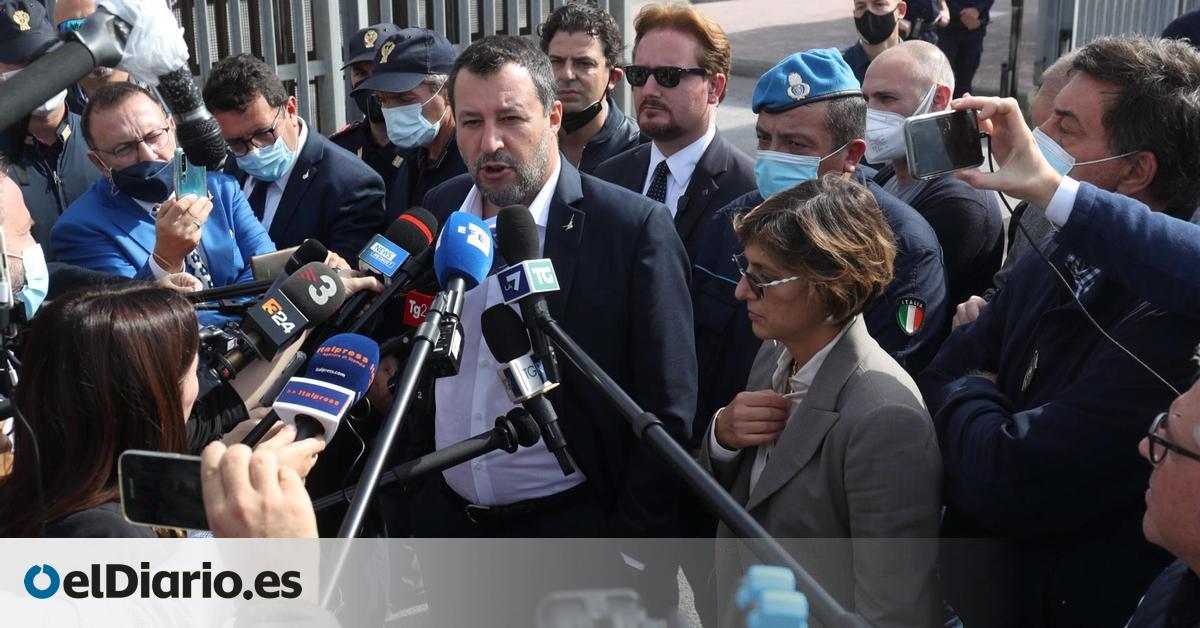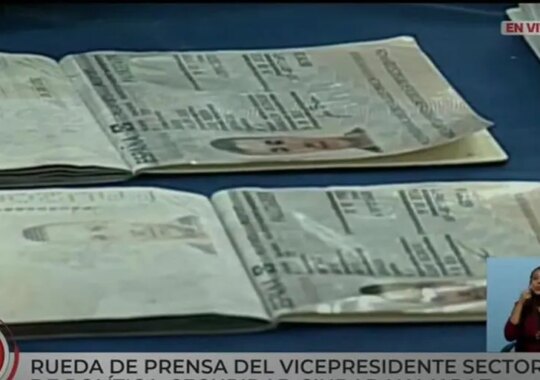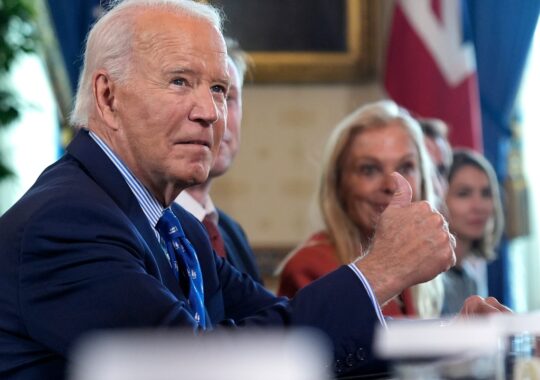The public prosecutor's office in the southern Italian city of Palermo on Saturday demanded a six-year prison sentence for far-right politician Matteo Salvini for blocking the Open Arms NGO ship with 147 migrants on board. Salvini made the decision in August 2019, when he was Interior Minister, as part of his policies against illegal immigration.
The prosecutor Marzia Sabella has demanded this sentence after a long argument, denouncing in her conclusions that the accused “was aware of the illegitimacy of his actions” and that “the conscious rejection” of the ship “violated the freedom of 147 people without an understandable reason.”
Salvini, the current vice-president of Giorgia Meloni's government and minister of infrastructure, did not attend the Palermo court despite the importance of the hearing in this trial in which he is accused of the crimes of kidnapping and abuse of power.
The far-right leader Salvini regretted the decision of the Public Prosecutor's Office on Saturday and declared himself guilty of “defending Italy and the Italians.” The vice president argued on social media that “Article 52 of the Italian Constitution declares the defense of the homeland as a sacred duty of the citizen. I declare myself guilty of having defended Italy and the Italians. I declare myself guilty of having kept my word.”
Meloni, for her part, expressed her “total solidarity” with Salvini. “It is incredible that a minister of the Italian Republic runs the risk of ending up in prison for six years for having carried out his own work defending the borders of the Nation, as required by the mandate received from the citizens,” said the Italian prime minister.
In a message posted on social media, Meloni added that “transforming the duty to protect Italian borders from illegal immigration into a crime is a very serious precedent.”
Open Arms welcomes the request of the Prosecutor's Office
The founder of Open Arms, Oscar Camps, expressed his satisfaction with the request of the Public Prosecutor's Office in a statement. “Today is an important day for Italian and European justice. The Open Arms case is a particular and unique case, different from the proceedings against NGOs: in this case the landing in Italy was voluntarily and arbitrarily prevented by the Minister,” he said.
Camps stressed that during this process it was initially shown that the NGO's activities were “monitored by the Navy, with a submarine, and transmitted to the Ministry of the Interior.”
“These recordings, made by a Navy submarine and presented during the trial hearings, show that there was no institutional intervention aimed at rescuing the people on board, but only the desire to film actions or omissions that could be imputable,” denounced the founder of Open Arms.
The verdict in the case is expected on October 18, after the closing argument of Salvini's lawyer, Giulia Bongiorno.
Chronology of a pulse
The events date back to August 2019, when Salvini prevented the Spanish rescue ship Open Arms from disembarking for twenty days with 147 migrants who had been rescued in the Mediterranean Sea, as part of his strict policy of closed ports.
The situation on board the ship thus became critical, with dozens of immigrants waiting in the sun, including several minors, injured people and people who were “drinking sea water” or desperately throwing themselves overboard, as the other deputy prosecutor, Giorgia Righi, recalled today.
On 14 August, the Administrative Court of Lazio finally lifted the ban and the ship was allowed to enter Italian territorial waters, approaching the coasts of the Italian island of Lampedusa, in the south of the country.
Six days later, the prosecutor of Agrigento, Luigi Patronaggio, went on board to check on the situation of its occupants and ordered their disembarkation and the confiscation of the ship.
That evening, the Open Arms ship docked at the port of Lampedusa to finally disembark 83 migrants, as the rest had been evacuated earlier for medical reasons.
This ended Salvini's initial standoff with the NGO, which then led to the court battle, when in July 2020 the Senate voted in favour of allowing the process since the minister had immunity.
In recent months, Salvini has claimed that his intention was to protect the borders and force a redistribution of immigrants across Europe, and has assured that his policies were “shared” by the rest of the government, a coalition between his League and the Five Star Movement chaired by Prime Minister Giuseppe Conte.
The prosecution's thesis
Another of the Palermo prosecutors, Colagero Ferrara, said in his speech that this trial “has nothing political” but is only trying to judge “administrative acts.”
He also explained that since Salvini took office as Interior Minister in June 2018, decisions on landings were passed directly to his cabinet: “It was the minister who decided, this is a key element,” he said.
In any case, he pointed out that respect for those rescued at sea must come first. “According to international conventions, criminals and terrorists, whether real or suspected, cannot be abandoned at sea. They must be saved,” he said.
“There is a key and undebatable principle: between Human Rights and the protection of State sovereignty, in our legal system the former must prevail,” he said.
His colleague Sabella also found it “legitimately understandable” that Open Arms refused on 18 August to go to the port offered by Spain, Algeciras (south), because it was too far away when it was already near Lampedusa, the closest port according to maritime law.
“A revenge of the left”
The far-right politician did not attend the hearing in Palermo but spoke about the issue in an interview with the newspaper Libero, blaming the trial on “a revenge of the left”.
“I face up to 15 years in prison for having kept my word to the voters. I would do it again: defending the borders against illegal immigrants is not a crime. Go ahead, without fear,” he wrote on social media.
His lawyer, Giulia Bongiorno, who did attend the hearing, described the position of the prosecution as “a little contradictory” because she saw in it “a political line,” she said during a media break.
The lawyer, who at the time of the events was Minister for Public Administration, will deliver her final argument on October 18, after which the first-instance sentence is expected.
Meanwhile, the League, one of the three parties in Meloni's coalition, has organised protests for the last two weekends in September and a demonstration on 6 October in its stronghold, the town of Pontida (north).




